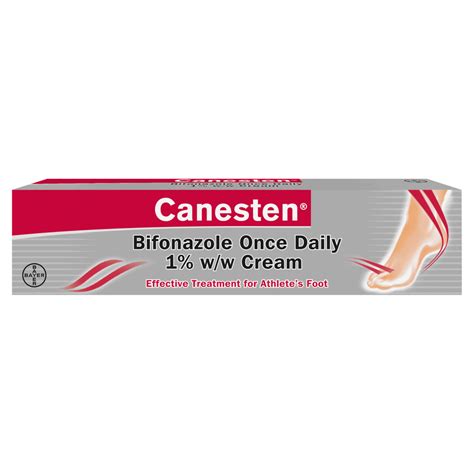Bifonazole Cream: A Comprehensive Guide
Bifonazole cream is a topical antifungal medication commonly used to treat various fungal skin infections. This guide will delve into its uses, effectiveness, potential side effects, and precautions. Remember, this information is for educational purposes only and should not be considered medical advice. Always consult your doctor or pharmacist before starting any new medication.
What is Bifonazole Cream Used For?
Bifonazole cream effectively targets a range of fungal infections affecting the skin, including:
- Athlete's foot (tinea pedis): This common fungal infection causes itching, scaling, and cracking of the skin on the feet.
- Ringworm (tinea corporis): Characterized by a circular, itchy rash on the body.
- Jock itch (tinea cruris): An itchy rash affecting the groin area.
- Candidiasis: A yeast infection that can affect various parts of the body, including the skin.
Bifonazole cream works by disrupting the fungal cell membrane, leading to the death of the fungus and subsequent clearing of the infection.
How Effective is Bifonazole Cream?
The effectiveness of Bifonazole cream largely depends on the severity of the infection and adherence to the prescribed treatment regimen. Generally, it's considered a highly effective treatment option for many common fungal skin infections. However, consistent application as directed by a healthcare professional is crucial for optimal results. Failure to complete the prescribed course may lead to recurrence of the infection.
Potential Side Effects
While generally well-tolerated, Bifonazole cream can cause minor side effects in some individuals. These may include:
- Mild skin irritation: Such as redness, burning, or itching at the application site.
- Allergic reactions: Though rare, allergic reactions can occur in sensitive individuals. Symptoms can range from mild skin rash to more severe reactions requiring immediate medical attention.
If you experience any unusual or persistent side effects, stop using the cream and consult your doctor immediately.
Precautions and Considerations
- Pregnancy and breastfeeding: Consult your doctor before using Bifonazole cream if you are pregnant or breastfeeding.
- Other medications: Inform your doctor about all other medications you are currently taking, as interactions may occur.
- Open wounds: Avoid applying the cream to open wounds or broken skin.
- Children: Use only as directed by a pediatrician.
- Allergic reactions: If you have a known allergy to Bifonazole or similar antifungal medications, avoid using this cream.
When to See a Doctor
While Bifonazole cream is effective for many fungal infections, it's crucial to consult a doctor if:
- Your symptoms worsen or don't improve after several weeks of treatment.
- You experience severe side effects.
- You have a severe or widespread fungal infection.
- You are unsure about the diagnosis of your skin condition.
By understanding the uses, effectiveness, potential side effects, and precautions associated with Bifonazole cream, you can make informed decisions about its use. Remember, self-treating can be risky. Always seek professional medical advice for any health concerns. This information is intended for educational purposes only and does not constitute medical advice. Always consult with a qualified healthcare professional for diagnosis and treatment.
